 1986 Daewoo LE Mans Dimensions, Size & Specs
1986 Daewoo LE Mans Dimensions, Size & SpecsMeasurements of the 1986 Daewoo LE Mans, engineered for optimal performance and comfort
| Dimensions | |
|---|---|
| Length: | 4495 mm177.0 in14.7 ft |
| Width: | 1670 mm65.7 in5.5 ft |
| Height: | 1365 mm53.7 in4.5 ft |
| Trunk Capacity: | 470 liter16.6 cu ft |
| Weight Specifications | |
| Curb Weight: | 1070 kg2359 lbs |
| Tire Specifications | |
| Tire Size: |
|
The Daewoo LE Mans, produced from 1986 to 1994, is a classic compact sedan exemplifying the automotive design and engineering of its era. Measuring 4495 millimeters (176.8 inches) in length, 1670 millimeters (65.7 inches) in width, and 1365 millimeters (53.7 inches) in height, this vehicle offers a balanced presence on the road, suitable for urban and suburban driving environments. Weighing in at a curb weight of 1070 kilograms (2359 pounds), the LE Mans combines lightweight construction with a sturdy build, contributing to its nimble handling and fuel efficiency. The sedan's luggage capacity stands at a generous 470 liters (16.6 cubic feet), providing ample storage space for daily use or longer trips, making it practical for families and commuters alike. Standard tire dimensions for the Daewoo LE Mans are 175/70 R13, ensuring a comfortable ride while maintaining good traction and road grip. As a compact sedan from the late 1980s and early 1990s, the LE Mans represents Daewoo's commitment to producing accessible yet reliable vehicles. Its size and weight specifications align well with the expectations for compact sedans in its class during its production years, placing it as a competitive option within its segment. Whether you are interested in classic Korean cars or comparing compact sedan sizes, the Daewoo LE Mans stands out for its balanced dimensions, practical luggage space, and modest weight, making it a notable choice in the history of compact sedans.
Discover the standout features that make the 1986 Daewoo LE Mans a leader in its class
Have a question? Please check our knowledgebase first.
The 1986-1994 Daewoo LE Mans sedan measures 4495 mm (176.8 inches) in length, 1670 mm (65.7 inches) in width, and has a height of 1365 mm (53.7 inches). These compact dimensions make it a practical car for urban and suburban driving, offering a balanced size that fits well in various parking and driving environments.
The Daewoo LE Mans has a curb weight of 1070 kg (2,359 lbs). This relatively light weight for a sedan contributes to better fuel efficiency and maneuverability. The light curb weight also means the engine requires less effort to propel the vehicle, potentially resulting in improved acceleration and lower running costs.
The Daewoo LE Mans offers a luggage capacity of 470 liters (approximately 16.6 cubic feet). This sizeable trunk space is adequate for family trips, grocery runs, or daily commuting needs. It provides practical storage for suitcases, shopping bags, or sports equipment, making the car versatile and convenient.
The Daewoo LE Mans is equipped with 175/70 R13 tires. This tire size balances comfort and road grip making it suitable for everyday driving conditions. Thirteen-inch wheels help maintain a smooth ride, and the tire width of 175 mm (6.9 inches) provides stable handling and moderate protection against road irregularities.
Yes, with dimensions of 4495 mm (176.8 inches) in length and 1670 mm (65.7 inches) in width, the Daewoo LE Mans fits comfortably into a standard residential garage. Its height of 1365 mm (53.7 inches) also means there are no issues with overhead clearance in typical home garages, making it practical for everyday use.
The Daewoo LE Mans falls within the compact sedan category typical of the late 1980s and early 1990s. Its length of roughly 4.5 meters places it on par with competitors like the Toyota Corolla and Honda Civic of that era. It is slightly wider than some compact sedans, offering a comfortable cabin, and its trunk space of 470 liters was considered competitive and practical for its class.
The LE Mans model itself represents Daewoo's effort to modernize its sedan offerings during the late 1980s. Compared to predecessors like the Daewoo LeMans Mark 1 or earlier compact models, this generation is larger and more refined in dimensions, with improved interior space and updated styling. Its length and width increased slightly to provide better passenger comfort and more trunk capacity, addressing customer demands for a more modern, spacious sedan.
While exact legroom and headroom figures for the Daewoo LE Mans aren't widely documented, the car’s overall dimensions and sedan body style suggest ample space for both front and rear passengers. The height of 1365 mm (53.7 inches) allows adequate head clearance, and the relatively wide 1670 mm (65.7 inches) width ensures comfortable seating for up to five passengers, typical of compact sedans of that era.
The Daewoo LE Mans offers a balance of compact size, lightweight, and good maneuverability, making it ideal for urban and suburban conditions. Its length under 4.5 meters allows easier parking in tight spaces, and with tires sized 175/70 R13, it provides a smooth and stable ride on city roads. Additionally, the decent luggage space and efficient weight contribute to everyday usability and economy.
During 1986-1994, the Daewoo LE Mans competed with compact sedans like the Toyota Corolla, Honda Civic, and Hyundai Elantra. Compared to these, the LE Mans offered comparable dimensions, competitive luggage capacity, and a lightweight design that enhanced fuel economy. Though sometimes less powerful or technologically advanced, it was recognized for solid build quality and affordability, making it a strong contender in the budget-friendly compact sedan market.
Discover similar sized cars.
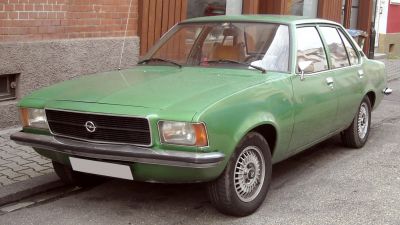
| Production: | 1972-1977 |
|---|---|
| Model Year: | 1972 |
| Length: | 4567 mm179.8 in |
| Width: | 1718 mm67.6 in |
| Height: | 1415 mm55.7 in |
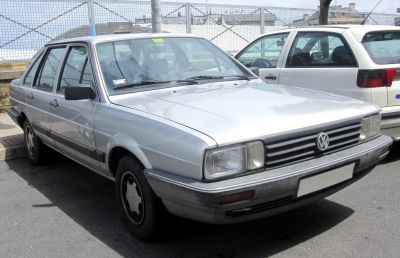
| Production: | 1981-1988 |
|---|---|
| Model Year: | 1981 |
| Length: | 4545 mm178.9 in |
| Width: | 1695 mm66.7 in |
| Height: | 1400 mm55.1 in |
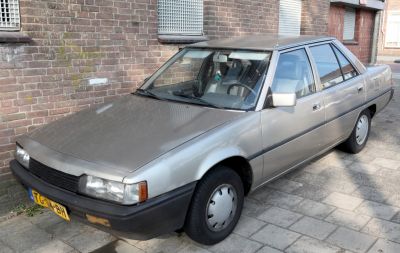
| Production: | 1984-1987 |
|---|---|
| Model Year: | 1984 |
| Length: | 4560 mm179.5 in |
| Width: | 1695 mm66.7 in |
| Height: | 1395 mm54.9 in |
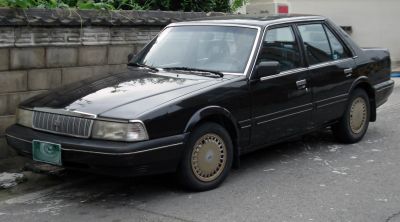
| Production: | 1987-1995 |
|---|---|
| Model Year: | 1987 |
| Length: | 4570 mm179.9 in |
| Width: | 1720 mm67.7 in |
| Height: | 1405 mm55.3 in |
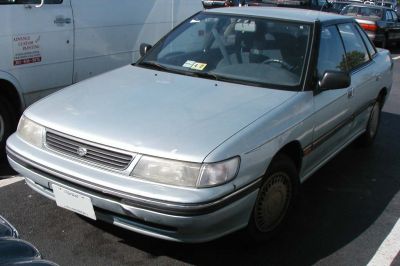
| Production: | 1991-1994 |
|---|---|
| Model Year: | 1991 |
| Length: | 4545 mm178.9 in |
| Width: | 1690 mm66.5 in |
| Height: | 1380-1400 mm54.3-55.1 in |
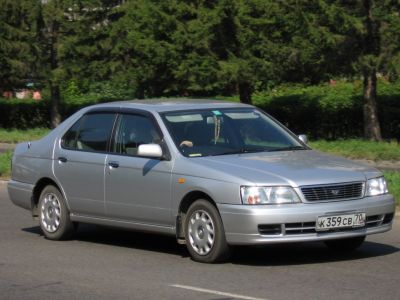
| Production: | 1996-2001 |
|---|---|
| Model Year: | 1996 |
| Length: | 4565 mm179.7 in |
| Width: | 1695 mm66.7 in |
| Height: | 1395-1420 mm54.9-55.9 in |

| Production: | 1998-2001 |
|---|---|
| Model Year: | 1998 |
| Length: | 4570 mm179.9 in |
| Width: | 1695 mm66.7 in |
| Height: | 1400 mm55.1 in |
